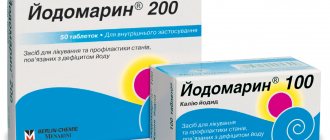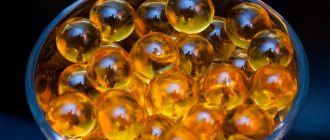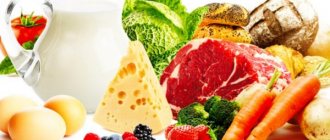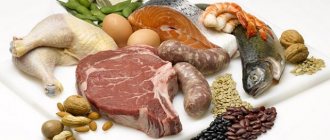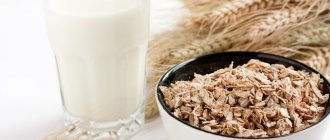Bromelain is a substance found in large quantities in pineapples. Most people don't realize that pineapples are much more beneficial for humans than is commonly believed. And this is due to the fact that pineapple is a storehouse of bromelain, a powerful enzyme that enhances protein digestion. Both the pineapple itself and bromelain preparations will help you absorb nutrients as efficiently as possible.
Let's look at this enzyme in more detail, and also study the instructions for using bromelain - how and how much to take to get the desired effect, we will give examples of high-quality drugs.
What is bromelain
Bromelain is a compound made up of proteases commonly found in pineapples. Although it is widely known for its ability to aid digestion and protein breakdown, its uses go far beyond these functions and have much more to offer.
The history of bromelain is closely related to pineapple, as it is the only known major source for this group of enzymes. First discovered in 1891 by chemist Vicente Marcano and later developed by Russell Henry Chittenden, bromelain was first named "bromelain" and described as "the proteolytic enzyme of pineapple juice." Its first major source was the pineapple fruit, but mature pineapple stems have been found to have a much more concentrated content.
Over the years since its discovery, bromelain production has increased significantly. Its commercialization has encouraged manufacturers to develop faster methods for large-scale extraction and purification. Bromelain supplements are now used in many areas of health.
It has been noted that these effects depend on when the supplement is taken. For example, when taken after a meal, it helps with better digestion and absorption, but when taken on an empty stomach, it can help relieve inflammation.
Bromelain: interaction
Bromelain is not recommended to be taken in conjunction with natural blood thinning supplements such as red clover, ginger, garlic and turmeric, as well as vitamin E. It has also been suggested that certain metal ions, such as zinc, may inhibit the enzymatic function of bromelain .
What is bromelain obtained from?
The only major source of bromelain is pineapple. This enzyme is usually extracted from pineapple stems or young fruits, but it is also noted that this substance is present in other parts of the plant, but its levels are very low. There are no other fruits that contain such large amounts of this compound. There are currently two types of bromelain, depending on where the enzyme was extracted from:
- Stem bromelain (SBM). This type of bromelain is widely available on the market because it is cheaper to extract and the stem is essentially a waste product of the plant. This extraction is carried out by centrifugation, ultrafiltration or lyophilization. When bromelain is mentioned or used in mainstream products, it is most likely this type;
- Fruity bromelain (FBM). Research shows that fruit bromelain has weaker digestive activity compared to stem bromelain, but has better proteolytic activity. Unlike the original bromelain, this type is not often used due to its limited availability and production costs.
What is bromelain?
Pineapple is a plant native to South America that is considered the main source of bromelain. This enzyme is often used in medicine and you can easily find it in the form of a dietary supplement. Typically, bromelain is obtained from the stems and fruits of the plant. This is not the only substance that makes pineapple a unique fruit. The pulp of the pineapple fruit contains a lot of vitamin C , vitamin B1 , potassium , manganese and other phytonutrients . But of course, the main secret of pineapple is bromelain.
Benefit for health

As a protease enzyme, the main benefit of bromelain is improving protein absorption. However, bromelain is widely used to heal wounds and treat many diseases. For example, if you suffer from chronic inflammation or sports injuries, consider using bromelain supplements to help your body recover.
Other benefits of bromelain:
- Reduces inflammation and swelling. Bromelain relieves symptoms of osteoarthritis and rheumatism. It is also used to reduce swelling and promote tissue healing. People taking medications for arthritis are advised to take bromelain;
- Improves immune function. Research shows that bromelain supports immune system health by regulating numerous inflammatory proteins during periods of cellular stress;
- Accelerates wound healing. Use of bromelain after surgery has been observed to promote soft tissue healing and reduce bruising. Patients who took bromelain had shorter wound healing times compared to patients who did not take it;
- Relieves symptoms of sinusitis. Sinusitis is an inflammation of the lining of the sinuses, usually caused by infections, respiratory problems, or allergies. Bromelain is a well-known supplement for relieving sinusitis symptoms. Together with quercetin, bromelain relieves sinusitis, and quercetin acts as an antihistamine.;
- Supports blood flow. Helps improve the efficiency of blood flow by reducing platelet aggregation in the arteries and therefore reduces the likelihood of blood clots. This may reduce the risk of developing atherosclerosis and other cardiovascular diseases.
Bromelain - instructions for use
Next, we will consider the main indications for the use of the bromelain enzyme.
Prevention of tumor diseases
Studies have found that bromelain has natural anti-cancer effects, including promoting the death of “bad” cells and preventing tumor growth (). It has been shown in animal studies that it can induce the production of selected cytokines, has antimetastatic efficacy, and inhibits metastasis by reducing platelet aggregation.
Research has linked bromelain to increased protection against breast and lung cancer. The journal Anticancer Drugs recently published the results of a clinical trial that suggested it had an effect on malignant peritoneal mesothelioma, a rare cancer caused by asbestos exposure. According to the study, it was found that taking a drug with bromelain significantly increased the death of cancer cells (cytotoxicity). Bromelain has the potential to be developed as a therapeutic agent in the treatment of malignant cancer ().
Digestive disorders
How can bromelain preparations be useful for stomach or gastrointestinal disorders? Because this enzyme helps in the digestion of proteins and has been found to help your body absorb nutrients and even medications more efficiently. Research shows that it reduces colon inflammation and reduces the release of pro-inflammatory cytokines that damage the intestinal lining (). Because it is very effective in healing gastrointestinal tissue, bromelain is beneficial for people with any of the following gastrointestinal problems: ()
- Inflammatory bowel disease
- Ulcerative colitis
- Dyspepsia, or peptic ulcers due to Heliobacter pylori infections
- Colon cancer
- Constipation
- Crohn's disease
- Heartburn
- Diarrhea
Recovery after surgery and injury
The anti-inflammatory properties of bromelain make it an excellent natural alternative to pain medications such as aspirin. One study that assessed bromelain's ability to treat patients who had third molars removed found that it promoted wound healing and helped reduce pain and swelling after surgery ().
Most patients who have this surgery experience significant postoperative symptoms, and unfortunately, antibiotics and pain medications are not always effective in preventing infection or other discomfort during the healing process. Of the 80 people who took part in the study, those who were prescribed the drug bromelain reported "significantly less" post-surgery pain, swelling and even redness compared to the control group who were prescribed a general painkiller drug.
Allergies and asthma
The journal Evidenced-Based Complementary and Alternative Medicine highlighted the results of a study that examined the effects of bromelain on mice with asthma. The study yielded some interesting results - for example, bromelain reduces allergic sensitization and stops the development of other inflammatory reactions affecting the airways ().
These results indicate that the enzyme helps modulate the entire immune system. This can help prevent allergies by addressing the cause—an overactive, oversensitive immune system. The study noted that CD11c(+) dendritic cells and DC44 antigen-presenting cells were "kept at bay" when supplemented with bromelain, a sign that this enzyme is capable of addressing the cause of asthma and allergies. This is why it helps most people suffering from symptoms such as stuffy/runny nose, itchy eyes, swollen lymph nodes, congestion and breathing problems.
Related articles:
- Effective folk remedies for allergies: a guide to…
- Serrapeptase: uses, benefits, dosage, risks
Sinus infections (rhinosinusitis)
To see if a daily dose of bromelain (300 FIP units, 600 mg tablets) could help people suffering from chronic sinusitis (inflammation of the sinuses), researchers from the University of Cologne in Germany took 12 sinus surgery patients and treated them with bromelain for three months. They found the following benefits of bromelain: overall symptoms and overall quality of life improved, and no side effects were reported ().
Since surgery is often ineffective in treating sinusitis, this study offers hope for people suffering from chronic nasal problems.
Joint pain
Thanks to its powerful anti-inflammatory and pain-relieving properties, bromelain is great for reducing acute or chronic joint pain. The Journal of Alternative Therapies in Health and Medicine published a study that evaluated 42 osteoarthritis patients with degenerative spine or joint disease.
Patients were given bromelain medications - two 650 mg capsules two to three times a day on an empty stomach (depending on whether they had acute or chronic pain). The researchers found that pain decreased in 60% of participants dealing with acute pain and in more than 50% of those with chronic conditions. The researchers concluded that bromelain has anti-inflammatory and analgesic properties and may provide a safer alternative or complementary treatment for osteoarthritis ().
Excess weight and weight loss
Scientists suggest that there is a definite connection between bromelain and weight loss. Its effects on weight control and fat cells are still being studied, but there is evidence to suggest that it may help with weight loss due to its anti-inflammatory effects, ability to reduce pain, and ability to improve physical performance and digestion.
Some studies have shown that bromelain helps inhibit adipocyte fatty acid binding protein, fatty acid synthase, and lipoprotein lipase. It may also inhibit adipogenesis (cell differentiation that can promote the formation of fat cells) and reduce triglyceride accumulation.
When can you use bromelain?
Due to the impressive properties of bromelain, it is not surprising that it is used to treat or reduce the severity of the symptoms of a disease. Although it is usually prescribed or recommended to patients who have undergone surgery or suffer from chronic sinusitis, bromelain can be used for other conditions.
These include:
- Topical use for burns. Research shows that bromelain helps remove dead skin cells from third-degree burns and heals first- and second-degree burns. For severe burns, bromelain ointments should not be applied without medical supervision;
- Indigestion and heartburn. Taking bromelain may help reduce stomach upset and gas, especially if you are taking other supplemental enzymes;
- Soothing balm for insect bites. Applying bromelain directly to insect bites may reduce inflammation and discomfort;
- Meat tenderizer. Pineapple is used to tenderize meat in cooking. Today, bromelain is sold as a meat tenderizing powder and is usually combined with papain, an enzyme found in the papaya plant. In fact, bromelain is such a powerful meat tenderizer that chefs say it can turn meat into mush.
Bromelain and other nutrients
To make bromelain's effects even more powerful, combine it with other anti-inflammatory compounds such as quercetin or curcumin (the active ingredient found in turmeric). Quercetin is a flavonoid antioxidant found in drinks and foods such as red wine, green tea, kale and blueberries. It helps fight free radicals and has antiviral, antimicrobial, anti-inflammatory and anti-allergic properties.
Turmeric is a powerful anti-inflammatory spice that is used medicinally as a natural alternative or in combination with medications such as NSAIDs, antidepressants (Prozac), anticoagulants (aspirin), arthritis medications, and even cancer treatments such as chemotherapy.
Making a smoothie with berries, pineapple, greens, and turmeric is one way to get all of these medicinal herbs and compounds.

Scientific Research on Possible Benefits and Applications of Bromelain
Bromelain has been the subject of numerous animal studies. They are usually designed to study the mechanism and effects of this supplement on various body systems. These studies focus on its function in wound healing, immunity, and anti-inflammatory abilities.
In a study conducted at the Manipal College of Dental Sciences, bromelain, papain, miswak and neem were found to help prevent plaque and gingivitis in patients undergoing ongoing orthodontic treatment. The findings suggest that bromelain, along with these natural ingredients, can be used as a dental cleaner to effectively reduce the risk of poor dental health in people with braces.
It is also believed that this substance has a positive effect on cancer treatment by slowing down or stopping metastasis. A 2013 study found that bromelain has a direct effect on the growth and spread of cancer cells in stomach and intestinal cancers. Its main mechanism is to stimulate apoptosis in cancer cells and activate certain tumor cell death pathways. Cancer patients also had improved appetite, decreased fatigue, and fewer other problems associated with cancer treatment.
Bromelain has also been studied for its ability to suppress lipogenesis, which is important for preventing obesity. A 2012 study from the Institute of Microbial Technology shows that this component has the ability to reduce fat formation by inhibiting adipogenesis and promoting apoptosis in mature adipocytes.
Benefit of the element
The most important property of the substance in question is the ability to break down proteins and complex lipids. In addition, the element forms the optimal composition of the intestinal microflora and alleviates the discomfort accompanying disruptions in the gastrointestinal tract.
With daily consumption of pineapples, bromelain entering the body has an anti-inflammatory and mild analgesic effect, increases blood flow, prevents the occurrence of thrombosis, strengthens the immune system, normalizes blood pressure, and reduces the symptoms of respiratory viral diseases.
It is recommended to include fruit in your diet:
- athletes (to accelerate muscle building, stimulate the recovery process after injuries);
- people suffering from inflammation of the intestines, tendons and joints - in order to relieve pain and relieve swelling;
- cancer patients (the enzyme slows down the growth of malignant tumors).
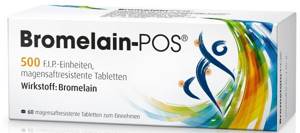
Research has refuted claims about the effectiveness of bromelain for weight loss: the enzyme is not an active fat burner. Regular consumption of dishes and drinks made from fresh pineapple (juices, smoothies, creams, fruit salads) promotes proper absorption of proteins and fats and prevents excess weight gain, but does not help reduce waist or hip size.
Dosage
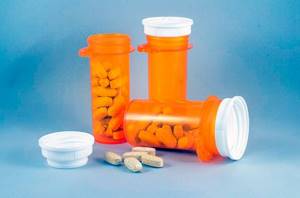
The recommended dose of bromelain depends primarily on what you are taking it for. Some doctors recommend taking two to three doses of bromelain per day. For stomach upset, the standard dose is 200 to 2,000 milligrams after meals. For other purposes, it can be taken at a dose of 200 to 800 milligrams per day.
However, this depends on the activity of the bromelain in specific supplements, which is usually measured in MCU or clotting units. For people taking two or three times a day, the dose may be reduced if necessary.
Although bromelain is considered safe, you should consult with your doctor to make sure you are getting the exact amount your body needs.
Bromelain: buy, price
Here is such a large assortment of forms, dosages and manufacturers of bromelain :
Buy Bromelain capsules and tablets!
1. You can buy bromelain at a low price and with guaranteed high quality in the famous American online organic store iHerb, so beloved by residents of Russia and the CIS (purchase in rubles, hryvnia, etc., reviews in Russian for each supplement). 2. Detailed step-by-step instructions for placing an order (very simple): How to place an order on iHerb! 3. When ordering on the website, you can apply the iHerb promotional code! You will receive a 5% discount on ANY order (without ADDITIONAL DISCOUNTS), as well as profitable Promotions of up to 40%! We definitely recommend that you take advantage of it; on your second order, you can also count on discounts or get some of your funds back through the best cashback services, which will try to return interest on purchases to already low prices! Don't miss active Ozone promotional codes for dozens of promotions for discounts and Aliexpress promotional codes for purchases with a good discount! 4. Detailed articles about the intricacies of delivery and payment: iHerb payment and iHerb delivery!
Photo source: iHerb.com
Possible side effects and contraindications
Bromelain is relatively safe and usually does not cause serious effects, even when taken in large quantities. However, there is a possibility that some people may suffer from allergic reactions after taking it, especially those who are allergic to pineapple.
Some of the common allergy symptoms include:
- Labored breathing;
- Severe itching and hives;
- Constipation;
- Sinus congestion;
- Anaphylactic shock.
People with allergies to latex, pollen, wheat, celery, carrots, and fennel should stop taking this supplement. It should also be noted that pregnant women should avoid taking bromelain as not enough research has been done to ensure that it is safe for you and your unborn baby.
Bromelain: contraindications
When taken correctly, bromelain is quite harmless, but for some people it is not recommended to take it. This primarily applies to children and pregnant women, as well as people who are intolerant or allergic to this enzyme. In addition, bromelain is not advisable for use by patients suffering from high blood pressure and liver or kidney disease. Sometimes, although very rarely, taking this enzyme is accompanied by unpleasant symptoms such as diarrhea and nausea. Women who take bromelain may experience increased menstrual bleeding.
Drug Interactions: When to Limit or Stop Taking Bromelain Supplements
Keep in mind that bromelain may exhibit specific interactions with medications you are currently taking due to its effects on absorption and digestion.
If you are taking any of the following medications, consider stopping or limiting bromelain until after treatment:
- Antibiotics. Research suggests that taking bromelain supplements in combination with antibiotic therapy may increase absorption and levels of the drug in the body;
- Anticoagulants and antiplatelet agents (warfarin, acetylsalicylic acid and NSAIDs (non-steroidal anti-inflammatory drugs)). Taking bromelain with anticoagulants may increase the risk of heavy bleeding;
- Sedatives. Some research suggests that bromelain may cause drowsiness in some cases, which may significantly enhance the effects of sedatives and antidepressants.
If you are taking any of these medications, consult your doctor.
Bromelain - Products and Sources
Wondering what fruits contain bromelain besides pineapple, and if there are other ways to get it other than eating certain foods?
There are three main ways to incorporate bromelain into your natural healthy lifestyle regimen:
Pineapple core
Bromelain is not found in significant quantities in other fruits, although pineapple is sometimes eaten along with unripe green papaya to increase absorption and provide the beneficial enzyme papain ().
Eating pineapple (fresh or frozen) is the best way to consume natural bromelain. It is found in all parts of the pineapple, but is most concentrated in the kernel (core). Keep in mind that the better the fruit, the softer the kernel will be. So make sure your pineapple is ripe and juicy enough. This way the pineapple core will be soft. Note that pineapple pulp is also healthy, but does not have the high bromelain content of the kernel. The core contains the highest concentration.
Pineapple juice
Juicing the pineapple core or adding it to a smoothie along with other vegetables such as cucumber is an easy way to consume bromelain. Drinking fresh pineapple juice is supposed to be a powerful remedy against inflammatory diseases.
It is recommended to drink 120 ml per day to prevent digestive problems, and up to 250 ml to treat conditions such as ulcerative colitis, inflammatory bowel disease or constipation.
Bromelain drugs
Bromelain supplements are usually in the form of a dry yellow powder extracted from pineapple juice that is centrifuged, ultrafiltrated, and lyophilized. Taking a natural bromelain supplement or a proteolytic enzyme supplement with bromelain can be very effective if you are treating a specific inflammatory or chronic condition. If you are trying to improve digestion, you should take bromelain supplements with meals, but for all other health conditions, you should take them on an empty stomach.
Bromelain enzyme from pineapple
Pharmaceutical and dietary supplement manufacturers obtain bromelain from pineapple. This occurs in both the stem and the fruit. However, sweet ripe fruits have little health benefits. Only green unripe fruits have a high concentration of the enzyme.
| area of use | description |
| Figuring out the structure | A field of chemical research that studies the structure of substances. Scientists can understand the broken down protein better than the whole protein. |
| food industry | As a plasticizer for meat and gelatin. |
| Leather production | For preparing and stabilizing latex paints. |
| medicine | As a digestive remedy, for the treatment of tumors and inflammations, especially after operations, especially in the area of the nose and sinuses. It also relieves joint problems and thins plaque on burn wounds. |

Pharmaceutical and dietary supplement manufacturers obtain bromelain from pineapple. This occurs in both the stem and fruit
Bromelain enzyme functions in the body
Many health professionals value bromelain for its health benefits. The enzyme has a positive effect on metabolism:
Bromelain as a protease
Bromelain belongs to a group of enzymes called proteases. They have the task of breaking down protein in metabolism. Thanks to the breakdown of bromelain, proteins quickly become available to muscles and organs.
Bromelain promotes digestion
As an enzyme that breaks down protein, bromelain speeds up the digestion process. Important nutrients from food enter the bloodstream faster and are available for metabolism to maintain functionality. Conversely, this means that food moves through the digestive tract faster because bromelain, so to speak, breaks it down into its individual components in a short time. This feature makes bromelain very popular as a dietary supplement for light diets.
Bromelain strengthens the immune system
To kill bacteria, during inflammation the body produces so-called immune complexes. However, increasingly they irritate the immune system. Bromelain counteracts this by fighting immune complexes and causing rapid breakdown. In addition, the enzyme, taken as a dietary supplement, even prevents the development of inflammation. High performance athletes in particular benefit from this effect. If the body needs all the energy to perform at the highest level, the immune system will no longer be able to do so. Infections spread easily throughout the body. However, these bacteria fight against the supplied bromelain.
Bromelain stops blood clotting
Fibrin is a substance that weakens blood circulation. Bromelain also combats this. The enzyme prevents the agglomeration of blood cells and, consequently, the development of thrombosis or vascular deposits.
Bromelain promotes wound healing
Bromelain also speeds up wound healing. On the one hand, the enzyme has an anti-inflammatory, anti-edematous effect, and on the other, it relieves pain. It thins blood crusts and scabs so that enough air can reach the wound. This supports the healing process.
Groups of people at risk
Children under 12 years old
Because not all of the side effects of bromelain have been studied, children under 12 years of age should not take this enzyme.
Pregnant and lactating women
Due to inadequate research results, doctors advise pregnant and nursing mothers not to take it, so as not to jeopardize the baby's health.
During antibacterial therapy
Although bromelain increases the level of antibiotics in the blood, taking it at the same time negatively affects the effect of the medicine.
People taking blood thinners
Bromelain promotes blood clotting. Therefore, people who take blood thinners should definitely check with their doctor about taking additional bromelain.

